Better Cotton Initiative Announces Nick Weatherill As New CEO
Better Cotton has announced Nick Weatherill, former Executive Director of the International Cocoa Initiative (ICI), as its new Chief Executive Officer.
Read moreBetter Cotton has announced Nick Weatherill, former Executive Director of the International Cocoa Initiative (ICI), as its new Chief Executive Officer.
Read moreA key cotton-producing country with a strong track record of innovation and sustainability in agriculture, Australia is the latest step in our traceability journey.
Read moreBetter Cotton will welcome cotton farmers, retailers, brands, environmental activists, and innovators to its annual conference, which takes place in İzmir, Türkiye, on 18-19 June.
Read moreBetter Cotton has joined the Policy Hub, a Brussels-based coalition, to contribute to key EU policy discussions.
Read moreBetter Cotton has launched a new roadmap for its decent work activities charting a transformative path towards dignified livelihoods for millions of people.
Read more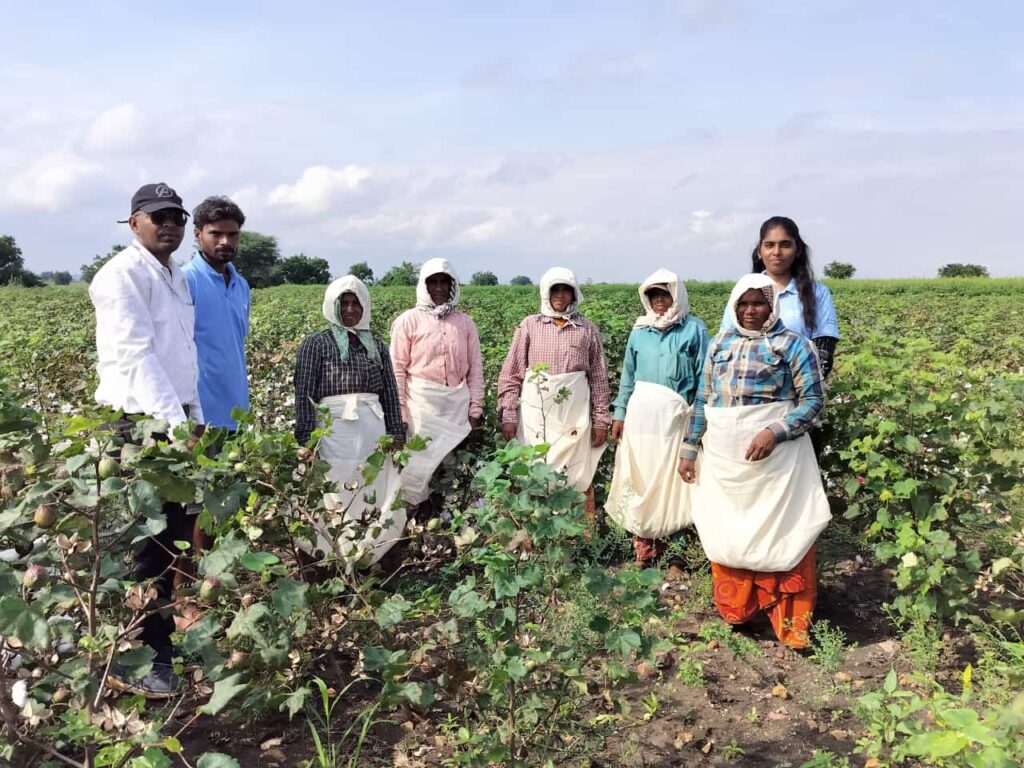

In India, one of the world’s leading cotton-producing nations, the crop remains a major source of pride. However, persistent challenges related to fibre contamination continue to plague cotton’s market potential, degrading fibre quality, reducing farmers’ and workers’ incomes, and undermining sustainable practices.
This is an issue faced in the cotton-growing districts of Guntur and Kurnool in Andhra Pradesh, where cotton is primarily hand-picked under demanding conditions. Contamination can come from a variety of places, including human and animal hair, synthetic particles from cotton carrying bags, and other environmental particles which can latch onto the cotton and reduce its quality. The impact of high levels of contamination on the quality of the cotton can lead to lower prices, reducing farmers’ and workers’ incomes.
Meanwhile, workers encounter numerous challenges stemming from harsh environmental conditions in the field and insufficient equipment, impacting health and productivity. These difficulties include sunburn and heat stress from prolonged time in the sun, pesticide exposure in recently treated fields, and physical exhaustion from lifting heavy loads.
Improving working conditions for cotton farmers and workers, alongside driving improvements in livelihoods and fibre quality, are at the core of Better Cotton’s sustainability efforts, as demonstrated by our Principles and Criteria.
Modern Architects for Rural India (MARI), one of our Programme Partners in India, has been at the forefront of addressing these issues through a holistic approach that improves both fibre quality and field-level working conditions. Working with over 15,000 farmers, MARI carried out field checks and identified gaps in existing practices to promote the safe, clean, and sustainable picking and storage of cotton.
Cotton picking in these districts is largely done by women, who work long hours under the harsh sun, often in fields recently sprayed with pesticides. Furthermore, the widespread use of synthetic garments and polypropylene bags exacerbates both contamination and discomfort.
In response, MARI spearheaded a collaborative initiative involving the National Bank For Agriculture And Rural Development, CIRCOT R-ABI, and key state departments to co-create a community-driven solution: an affordable and innovative Cotton-Picking Kit. Through an iterative process of field trials, farmer consultations, and design refinements, they developed a kit for farm workers, which includes a cotton apron or shirt, a protective cap, an intermediary field collection bag, and a cotton storage bag.
The kit is designed to allow workers to carry more cotton comfortably, hence making fewer trips across fields to empty their bags, reducing fatigue and increasing efficiency. By removing synthetic fibres from the collection bags, now made from cotton, contamination is reduced as the risk of any synthetic materials attaching to the cotton is eliminated. Reinforcing the bottom of the bags with denim also reduces the risk of breaking and ripping, which helps avoid contamination from dirt particles on the ground and in the general vicinity.
With the reduction of debris improving the quality of the fibre, this means a higher-quality product for ginners, putting farmers in a better position to negotiate higher prices for their cotton going forward. This in turn improves pay for both farmers and workers.
What also sets this initiative apart is its emphasis on circular economy principles. Rather than using virgin fabric, the kits are made from used and rejected cotton cloth, making them not just affordable but also environmentally responsible.
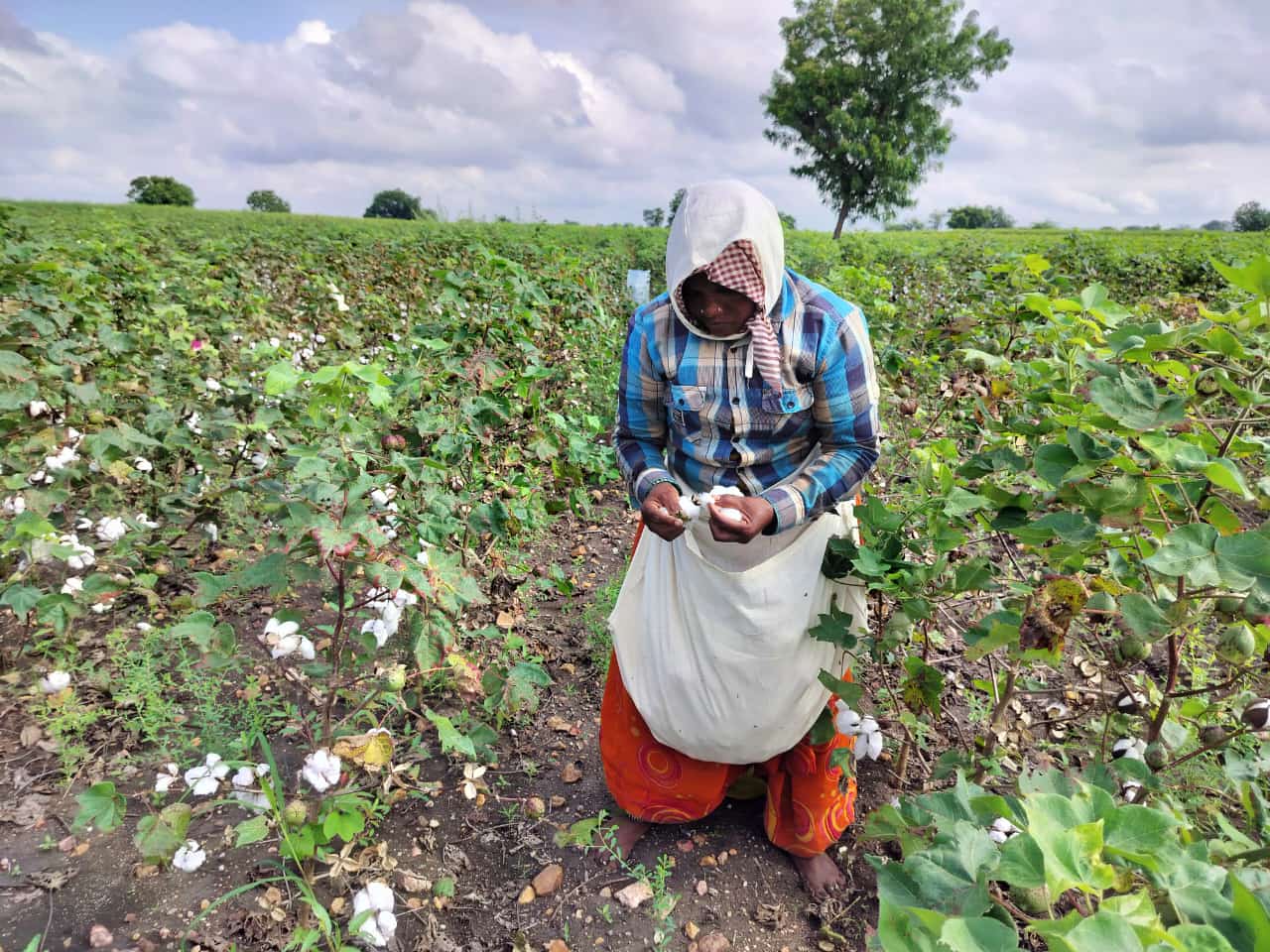

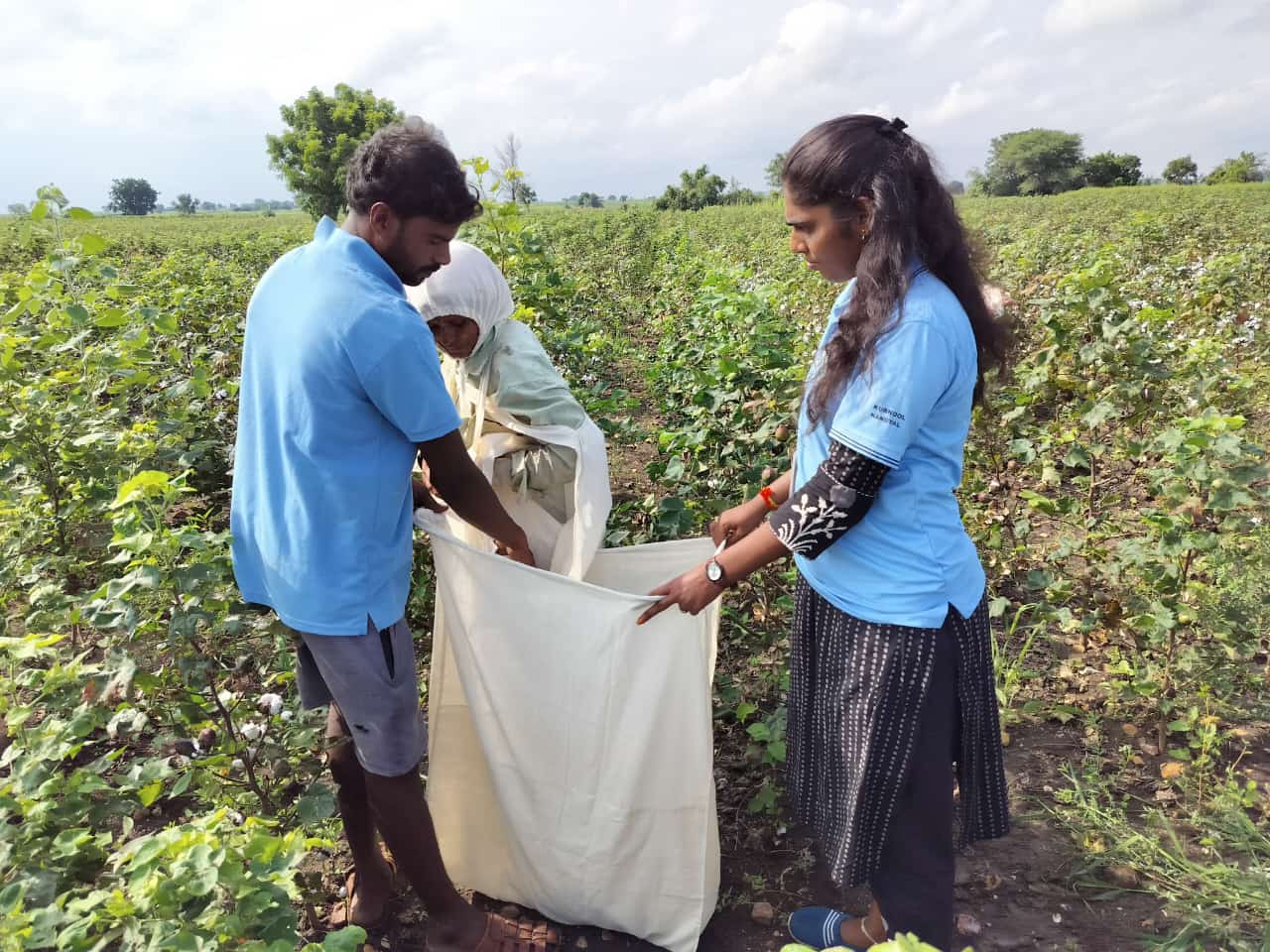

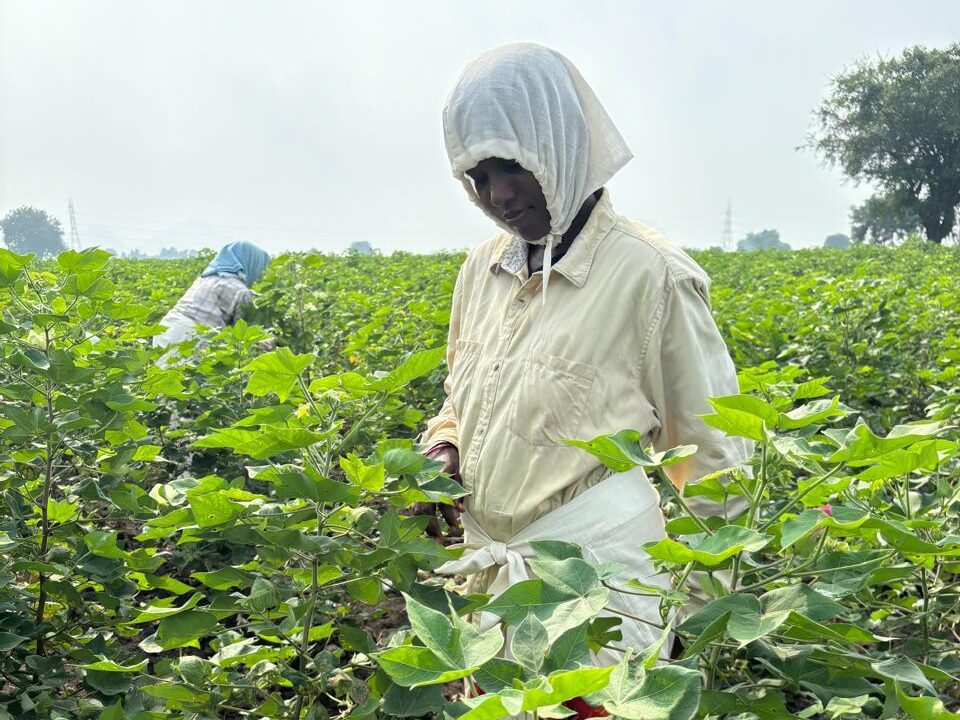

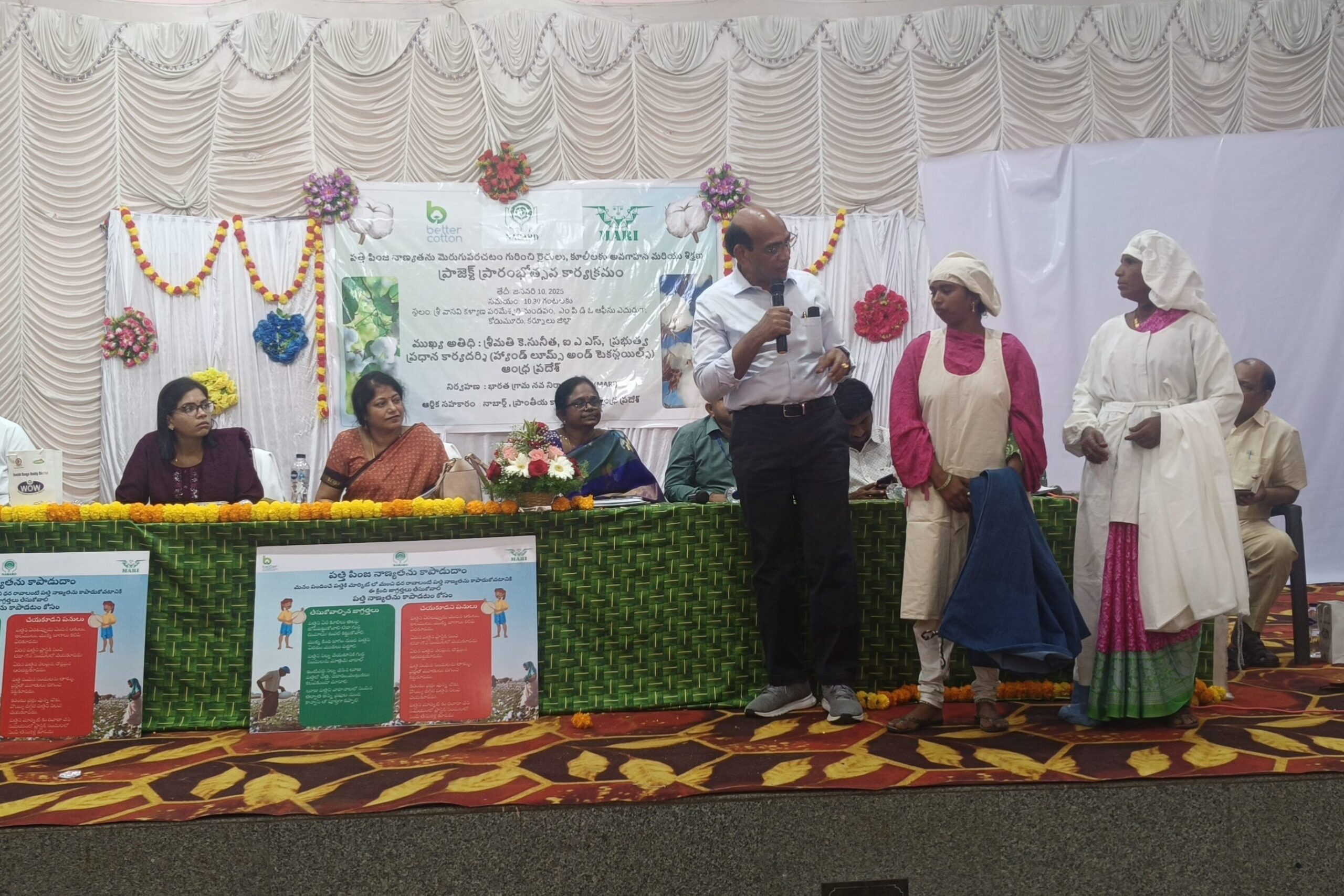

Women workers, the primary users of the kits, have reported a dramatic improvement in comfort. Cotton aprons absorb sweat effectively, unlike polyester garments that trapped the heat. The lightweight caps with elastic bands provide critical protection from sun and dust, making the long hours in the field less strenuous.
The switch from synthetic to cotton bags at various stages — from picking to field-level storage — has greatly reduced fibre contamination. The impact has been twofold: better quality cotton and safer, more dignified working conditions for women labourers.
“Wearing the cotton shirt and cap made my long hours in the field bearable — no more itching, sweating, or burning under the sun,” Chandramma, K. Nagalapuram, a cotton worker said, while appealing to key decision makers at a multi-stakeholder consultation in Kodumuru in January 2025.
“We need safety and comfort, along with our wages.”
The success of the pilot phase during the 2024–25 crop season has laid the foundation for scaling up the intervention. MARI is preparing to roll out the Cotton-Picking Kit across all its project clusters in the upcoming season, ensuring wider adoption and impact. The initiative stands as a compelling example of how workers’ well-being, environmental sustainability, and good-quality cotton fibre go hand in hand — and how community-led innovation can pave the way for sustainable solutions.
Read moreAs the Better Cotton Conference 2025 approaches, we want to take this opportunity to look back at our involvement in the country and encourage you to sign up to the wonderful field trips which we have planned!
Read more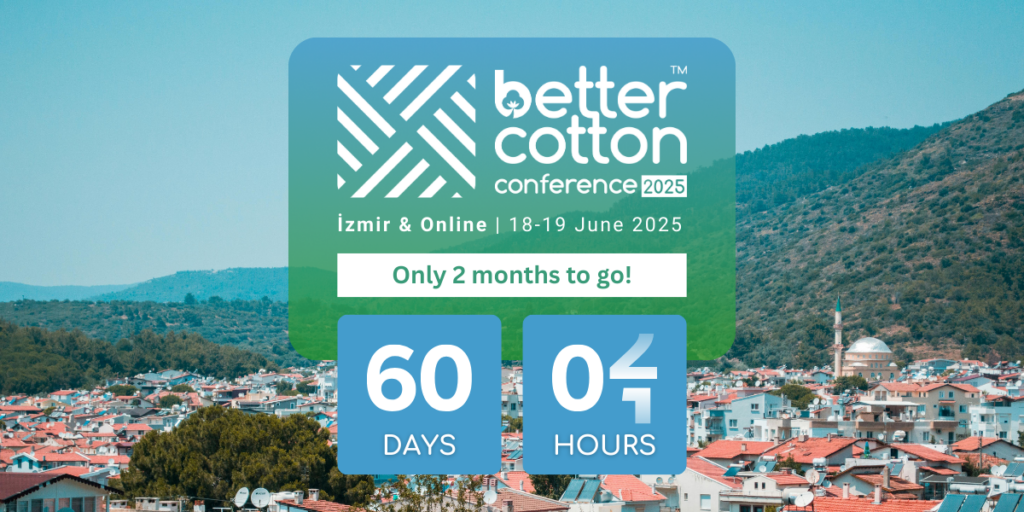

As we write these lines, our live countdown says 61 days, 16 hours, and 29 minutes… This means we are just two months from the Better Cotton Conference 2025, which takes place in the city of İzmir, Türkiye, on 18-19 June. We look forward to welcoming retailers, farmers, and other representatives of the cotton industry to this year’s event and wanted to take this opportunity to look at the busy agenda that will fill the two days of presentations and discussions – whilst we put the finishing touches to what promises to be one of the most important conferences we have held so far.
From supporting farmers and their communities to exploring how data can best help us shape the future of sustainable cotton, the 2025 Conference will come at a pivotal moment for Better Cotton and our community. With the recent implementation of our traceability programme and the launch of our certification system in early 2025, we have taken decisive steps towards greater efficiency, better engagement and improved accountability. We are now ready to take a leap towards an even more impactful Better Cotton.


Two transformative days
Our agenda reflects both our new approaches to more sustainable cotton and our solid and historical commitments. For all participants, it will represent a unique opportunity to connect with our work and to their peers’ experiences at this eventful time in the history of Better Cotton and the cotton sector as a whole. Below you can find a quick summary of the highlights of the conference, with much more yet to be announced.
Day One – Morning
Equality – There can be no path towards proper sustainability in the cotton sector without significant efforts for more equality. From the workers’ basic rights to supporting women wherever they face discrimination and restrictions, Better Cotton has intensified its efforts and searched for solutions, even in the most challenging of environments. Our plenary session will discuss livelihoods in the broader sense, but with specific targets in mind and a clear mission: to transform the lives of those working to produce our cotton. Other sessions will explore the current challenges we face as we seek to reach gender equality and secure decent work at the farm level and other stages of the supply chain.
Day One – Afternoon
Nature – If the environment is not sustainable, nothing else on our planet will be. This is a conviction that drives us in every single project and action we take in the more than 20 countries where Better Cotton operates. After lunch on our first day of debates, we will dive deeply into the most recent concerns, difficulties, victories, and future paths we need to take in order to continue to improve how cotton production interacts with the environment. We all know that the use of water must be balanced, that cotton farming must not provoke or benefit from deforestation, and that chemicals must be replaced by much less harmful or harmless pesticides. At the 2025 Conference, we will first discuss how the efforts to protect the environment can be paid for, and then explore the importance of biodiversity, discuss the potentially transformational impact of regenerative agriculture, and finally debate what we all wished we didn’t have to: how to adapt to and mitigate the already felt effects of climate change.
SCENES FROM THE BETTER COTTON CONFERENCE 2024, ISTANBUL
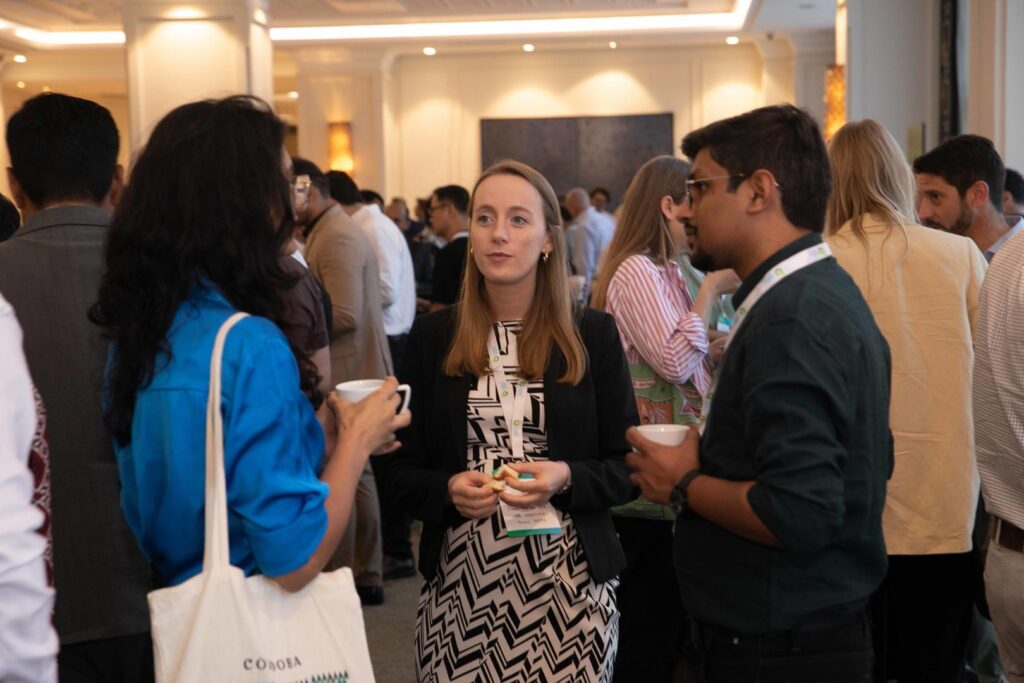

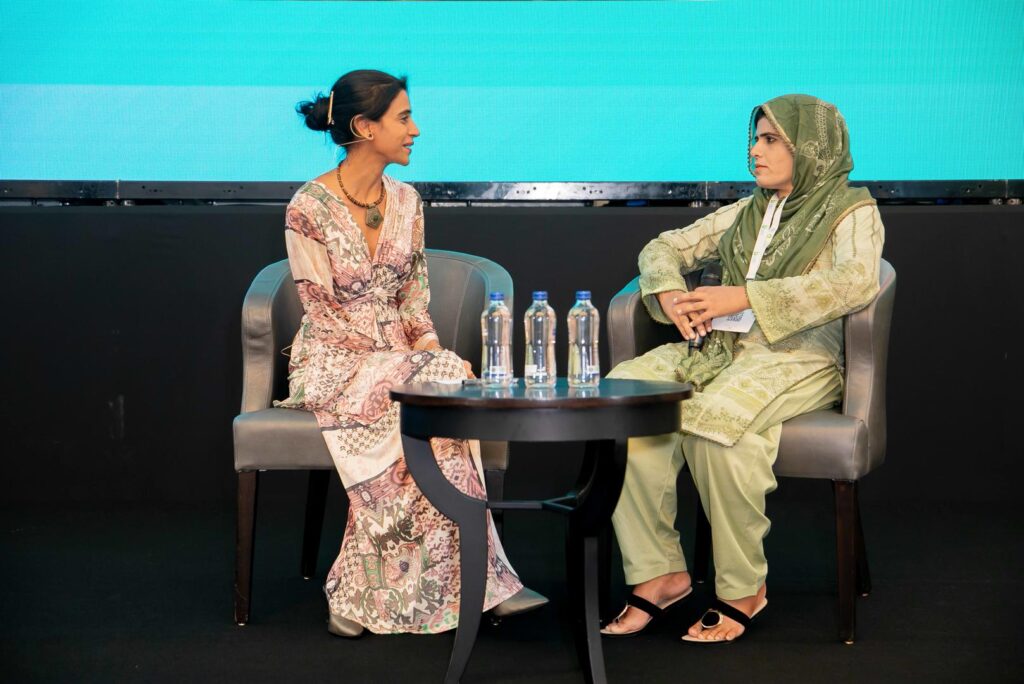

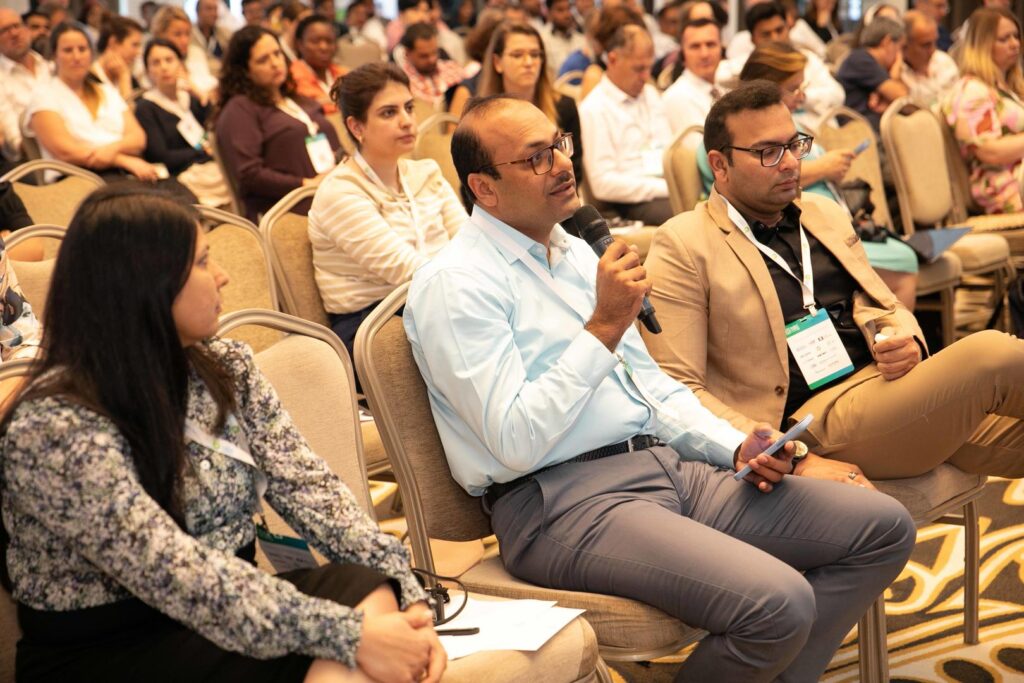

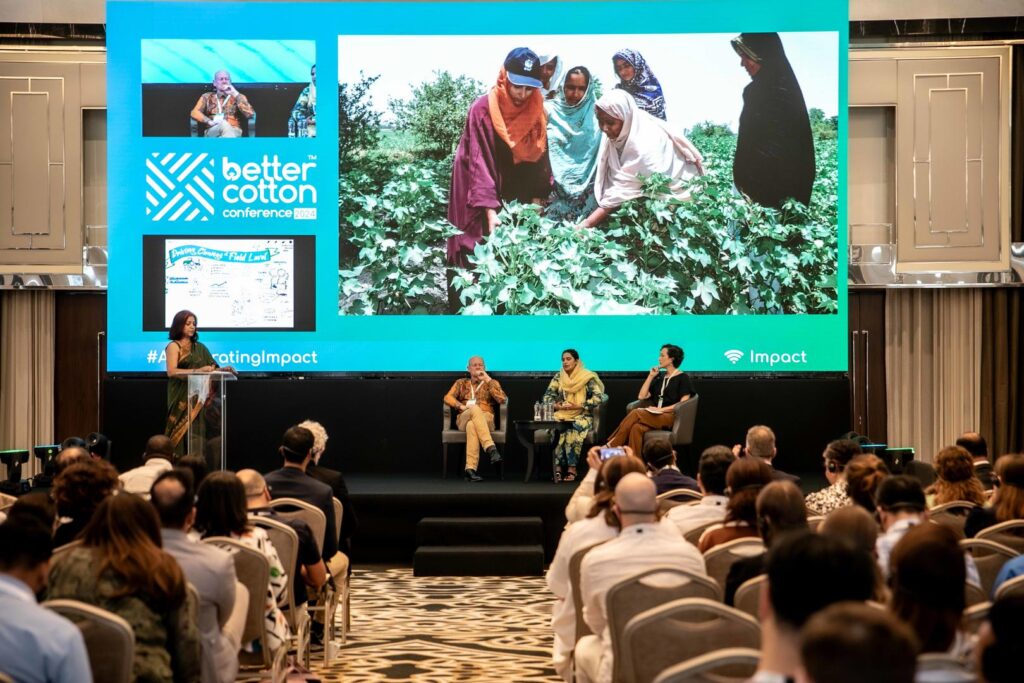

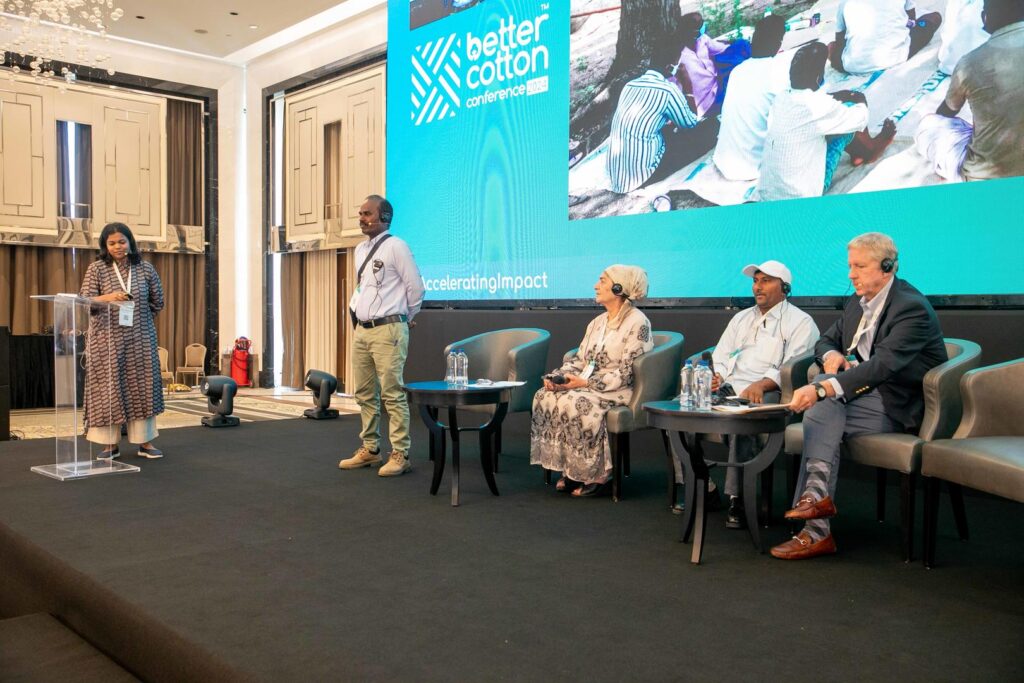

Day Two – Morning
Data for Impact – Who is afraid of technology? And who is not? Even if some of us are anxious about the change that new and emerging technologies can bring, now is the best time to be positive and embrace all the new possibilities that have been offered to our sector by data and digitalisation. The morning of the second day of our conference will explore everything that digital technology and the data it provides can do to help improving sustainability in the cotton industry, from identifying possible issues, so they can be solved, to highlighting achievements. This will also provide us with the opportunity to understand how digital capabilities will ensure the success of our Traceability programme. After these discussions, we are confident that everyone in the room should be convinced that, when used well, technology can be one of our best friends.
Day Two – Afternoon
It is all about the future – At Better Cotton we are always looking ahead, finding new ways of improving our actions around the world towards more sustainable cotton. The final sessions of our 2025 Conference will explore the new paths to be taken as part of our mission: certification, engagement that involves different commodities, and regenerative agriculture are all part of our next priorities, and in İzmir we will be able to share all of that with you and receive your invaluable contributions to make our future plans a reality.
The next two months will fly by, so get ready! We look forward to welcoming you at Better Cotton Conference 2025.
Read moreOn April 10th, Better Cotton hosted the inaugural meeting of a new Multistakeholder Platform in Pakistan which aims to promote collaboration and drive collective action. Bringing together representatives from government, industry, donors and academia.
Read moreIn its inaugural meeting, the Multistakeholder Dialogue brought together different sectors to share experiences and challenges to improve sustainability in cotton production.
Read moreA multistakeholder dialogue event was held in Brasília to discuss climate resilience, traceability, and greater collaboration in Brazil’s agricultural and textile sectors.
Read moreA package, a proposal, a directive… a bus? If you are not closely monitoring the many hiccups of the EU regulatory landscape, you may have seen a lot about it but still be wondering what the Omnibus Package is really all about.
Read more